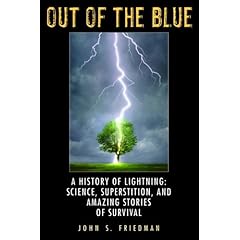On Salvation
I have been busier than usual, but not too busy to turn on sermons from my favourite preachers and listen to what they have to say. One such preacher is a man named Paul Washer. Last night I listened to his wife's testimony, and to a three-part sermons series on assurance of Salvation. It is basically his Examine Yourself sermon stretched out over three days of preaching with a lot more elaboration.But it made me turn back to 1 John, and think about evangelism and Paul's shotgun methods we read about.
But then I read Philemon and it made me cry. He has led Onesimus to the Lord, and Onesimus has become so dear to him, he calls him his heart. Paul uses his authority in his letters so frequently, something I feel like my attitude is at times, of "why don't you see this? don't make me come back there!!". And in this letter, he is so tender in his reference toward Onesimus. He seems a bit stern to Philemon, reminding him of the debt (I'm assuming Paul's leadership) he owes Paul in his plea to free Onesimus and welcome him as a brother. His words may be taken as stern, but it is apparent they are flowing from a love deep within. And this is what made me cry. The Lord has been breaking my heart about Him, about His ways, and about LOVE. Love being Him and His ways. God is love.
So, I guess, truly, I could criticize Paul. I could call him a loose cannon. But then I realize that it doesn't matter!!! Paul LOVES!!! Paul has been shown incredible grace after persecuting Christians to the point of death. He knows all about mercy.
Now, I may struggle with attitudes and imperfections, but now I understand love. And this is the irony, that I used to struggle with knowing whether or not I was a believer or not. And then I read 1 John, and I see that I am. I have learned to love. I don't deserve this. And sometimes it doesn't hit me hard enough, and I fear I will boast on my own strength. But the truth is that as I see how much I ought to love, the strength of Christ fills me and gives me the ability to love. We are given the mandate, and we are given the ability to love.
I ought not look at the outside, at the methods (although I have noticed they are coming with increasing compromise to the full gospel message, to be sure), I ought to fight and in the end, stand. With all I have, which is all I'm given. I was looking at the outside, saying "the Lord wouldn't use this, He surely won't do that after I've/they've done this." And that was so unbiblical. The Lord looks at the heart, and when He sees a heart willing to serve Him (because He's put that heart in us, and quickened our soul by His mercy and grace) it doesn't matter what that heart has done before or will do in the future, the Lord is merciful and about His glory, and will use even the most broken instrument to play a hymn for His pleasure and magnification.
But to get an understanding of what I'm talking about, I'm linking below to three blog posts by Dan Phillips over at TeamPyro. He does a great job of explaining that it is all about God when salvation is concerned. We must not concern ourselves with the methods or the means, but we must be sure that the full gospel is presented (and knowing the full gospel is a good place to start). Read the Bible daily. Become familiar with all of it. Know it backwards and forwards.
First
Second
Third









2 Comments:
Hey Marcia,
I am sorry to hear that you had some time struggling to know whether or not you were saved; whether or not you believed.
This is the type of feeling that is the result of being taught that one must look to oneself for a 'feeling' of assurance.
I dare say that many people can never truly be certain that they have received the grace of God, for they are taught to look at themeselves, to their attitudes, to their works, to their feelings and affections to gain some sense of assurance.
Do you love perfectly? Jesus says that even the sinners love with agape love (see Luke 6:32 in the Greek).
Can you say that you pass all of those "tests" in 1 John with flying colors? There are usually two answers to that question:
1) A prideful 'yes'
or
2) A discouraged 'no'
1 John was not written so that people could see if they were saved or not. It was written to Christians to encourage them to continue growing in fellowship with God.
We are never told to look to ourselves to see whether or not we are saved.
John Calvin, although I disagree with him on many things, believed that "assurance is of the essence of faith".
What that means is that when we believe Christ's promise, we have absolute certainty that we are saved. If Jesus says "Most assuredly I say to you, he who believes in Me has everlasting life" (John 6:47), and I believe that, I know, certainly, that I am saved. The guarantee of eternal life is inexorably linked to Christ's promise, and if I believe Christ's promise, I must believe myself saved, certainly. If I do not believe myself saved, how can I say that I believe Christ's promise?
Here is what John Calvin had to say on the matter:
"Doubtless, if we are to determine by our works in what way the Lord stands affected toward us, I admit that we cannot even get the length of a feeble conjecture: but since faith should accord with the free and simple promise, there is no room left for ambiguity" (Institutes III.ii.38)
"when the Christian looks at himself he can only have grounds for anxiety, indeed despair" (Comm. 1 Cor 1:9).
"In short, no man is truly a believer, unless he be firmly persuaded that God is a propitious and benevolent Father to him... unless he depend on the promises of the Divine benevolence to him, and feel an undoubted expectation of salvation" (Institutes III.II.16)
"Now we shall have a complete definition of faith, if we say, that it is a steady and certain knowledge of the Divine benevolence towards us, which [is] founded on the truth of the gratuitous promise in Christ" (ibid., II, ii, 7
"But if we have been chosen in Him, we shall not find assurance of our election in ourselves... Christ, then is the mirror wherein we must, and without self-deception may, contemplate our own election." (Institutes III.xxiv.5)
This is light-years away from what those in Lordship Salvation teach.
Certainty of assurance of salvation does not come from looking at ourselves, examining ourselves.
Certainty of assurance of salvation comes by taking Christ at His word, by looking to Christ and His promise in faith.
Antonio
Reformed and Lordship authors teach that assurance comes through subjective experimentation. This is the reason why R.T. Kendall calls Lordship Calvinists "Experimental Predestinarians", because one must always be about subjective experimentation to 'verify' if one truly has believed, and is saved.
R.T. Kendall and John Calvin, and the Free Grace movement do not believe that the assurance that God wants us to have comes from such experimentation, from looking to oneself, to works, affections, feelings, attitudes, etc. Only 'anxiety' and 'despair' or pride can come from such an experiment.
Imagine, for a moment, Marcia, that growing up, your dad didn't give you his objective word that you were indeed his daughter. When you got into trouble he would say, "you have every reason to doubt that you are my daughter, because you are not passing the tests." What kind of dad would that be?
John MacArthur has stated "You may be a spiritual defector who hasn't defected yet"
This means that you could be doing awesome now in your walk with God (by your own estimation) but at some time, because you are not one of God's elect, you will defect and show you were never born again.
Kendall, Calvin, and Free Grace theology teach that the only foundation for assurance is not subjective whatsoever. The only bedrock for assurance is the infallible and objective word of God that promises eternal life to all who believ in Christ for it.
We must not look to ourselves for assurance.
We must look only to Christ in His objective promise, and only then can we have the kind of assurance God wants us to have -- not some kind of 'think so' feeling, but certain, persuaded assurance.
Antonio
Post a Comment
<< Home